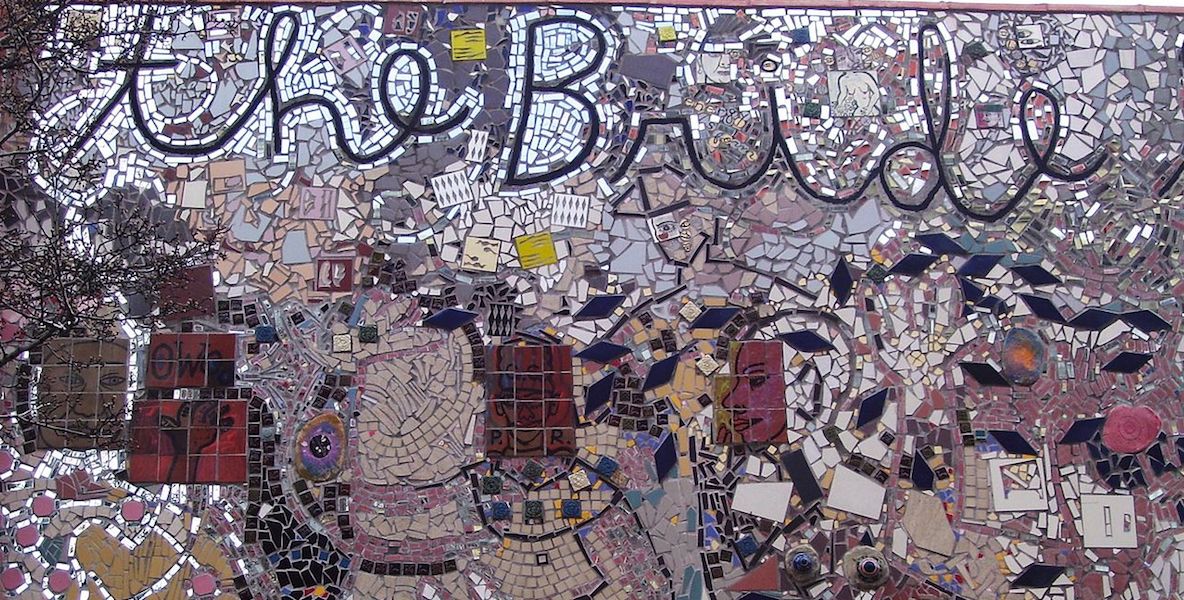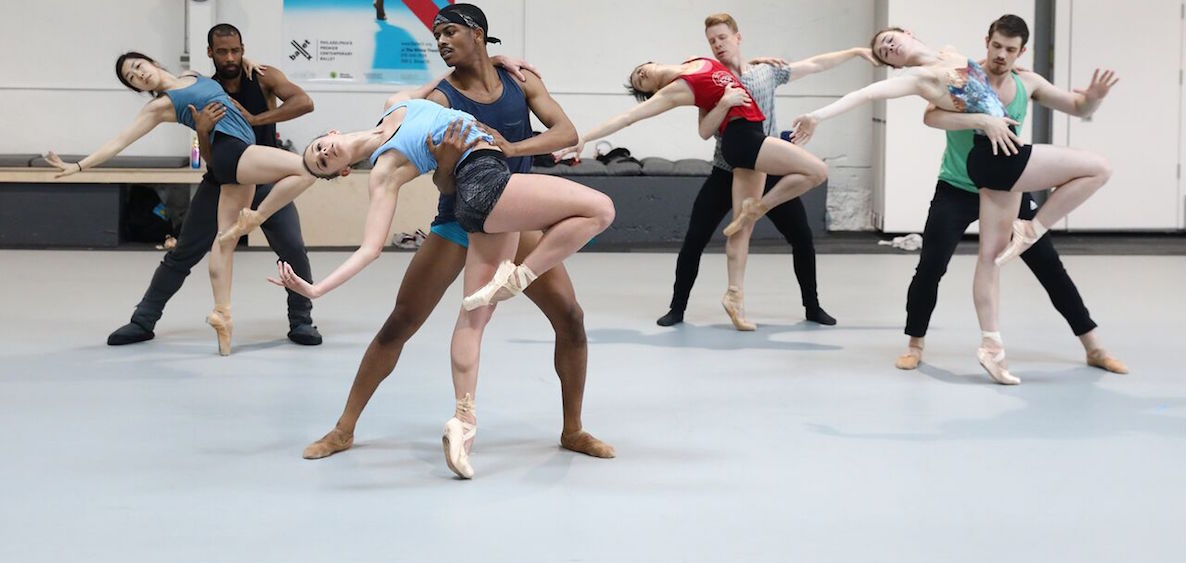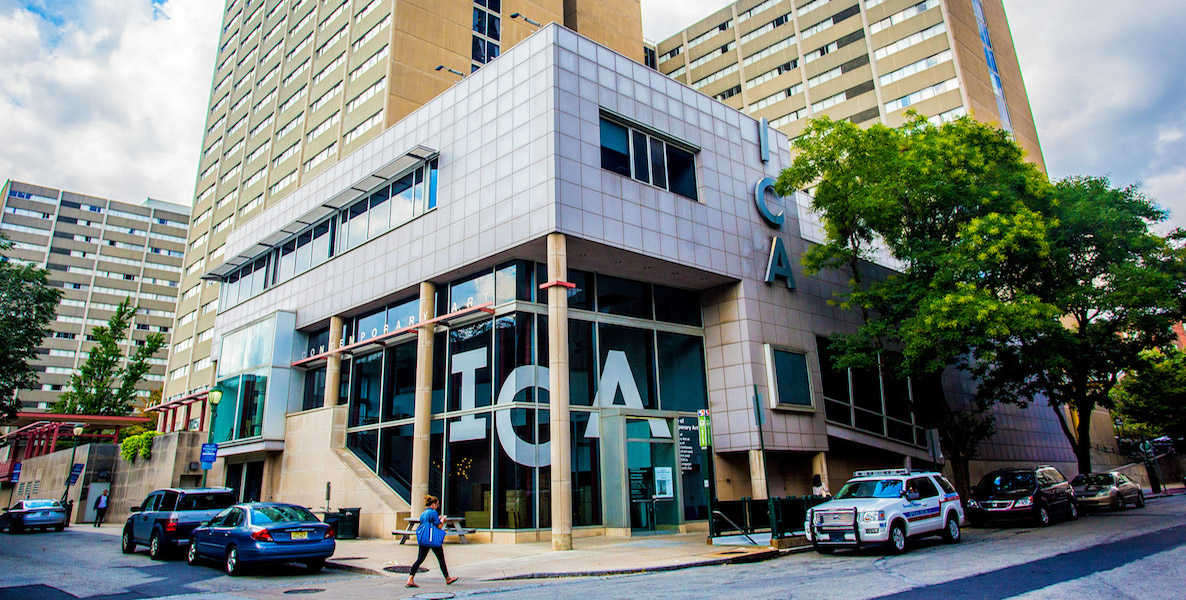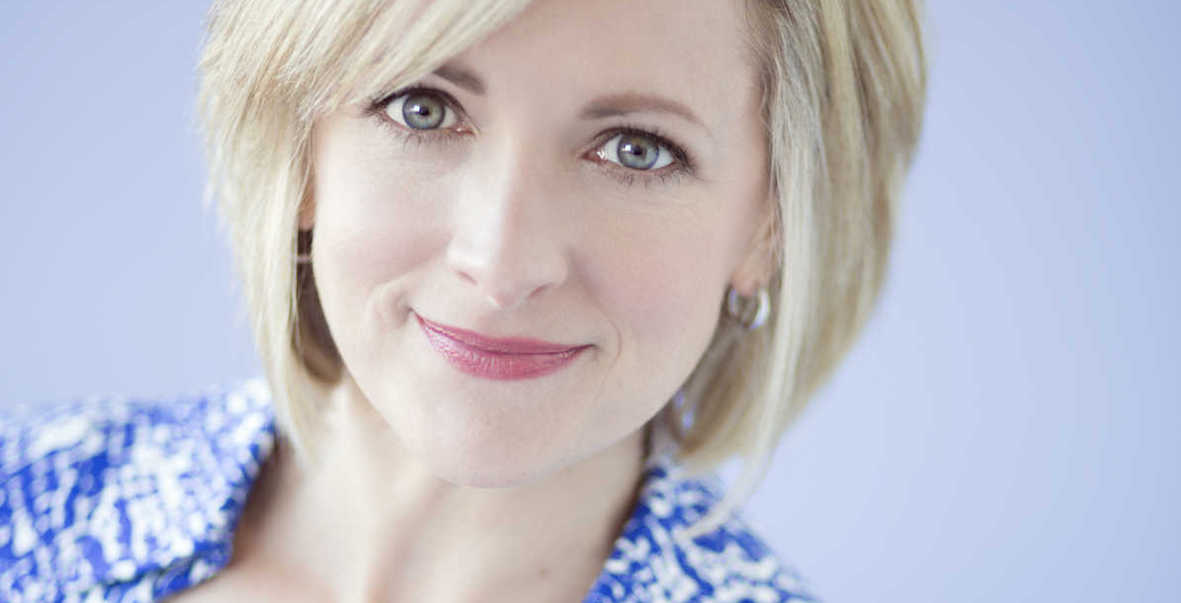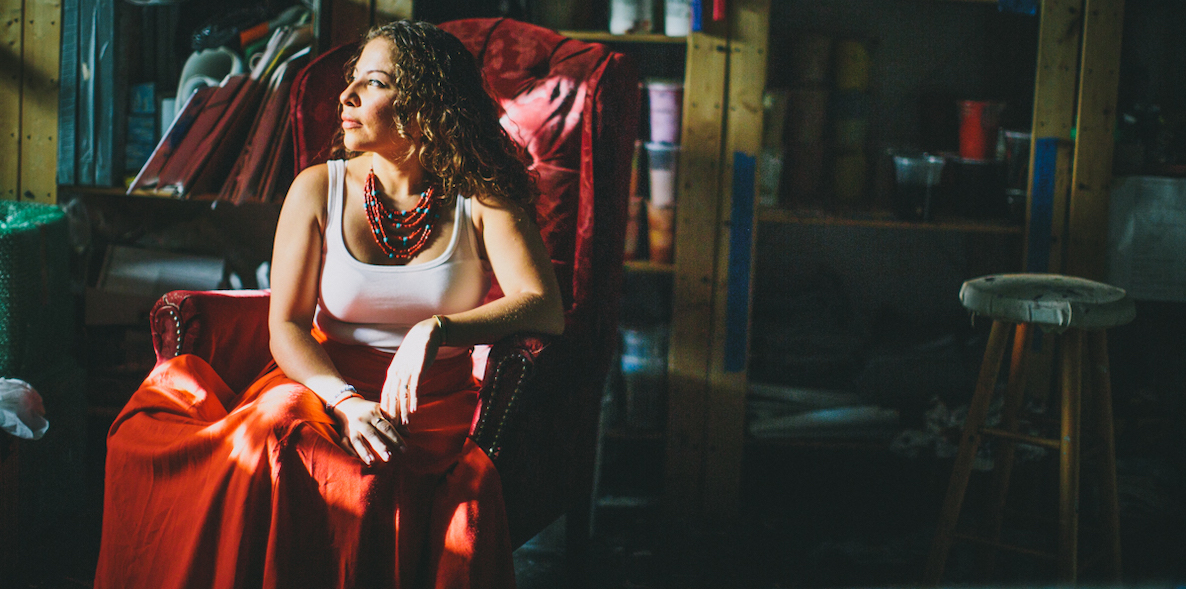Some might say using undocumented immigrants to install a 90-foot painting in front of the Immigration and Customs Enforcement building—as ICE agents look down from their office windows—is highly provocative. Some might even say reckless. But, this piece of art-as-activism laid out in in bright yellow letters, certainly got attention. And that’s the point.
Not only does artist and community arts educator Michelle Angela Ortiz, 40, want to get the attention of government officials and policy makers with her art, she knows she has to reach the public. Educated voters can hold their representatives accountable, and public outrage has a way of forcing politicians to take stock of an issue they may have previously avoided.
“I feel that if my art can help other people think differently and connect to each other to be reminded of our humanity, then it is serving a good purpose,” says Ortiz.
Despite having a police presence and a letter from the Streets Department commissioner assuring Ortiz that the immigrant families who helped in the creation of the mural outside of the ICE building would be safe, she remained vigilant: “The art work [part of her ongoing “Familias Separadas” project] is important, but it’s not always the priority. To be successful in this situation, we had to guarantee the safety of the community in the presence of a building that represents so much fear and for them to become fearless.”
Ortiz wants Americans—regardless of where they land in the immigration debate—to remember that the families who are fleeing Mexico and Central American are humans, and as such, worthy of compassion. The message on the street in front of the ICE building, painted in big block letters, is a quote from Ana, an undocumented mother who was detained at a Berks County family prison, and it reads: “WE ARE HUMAN BEINGS, RISKING OUR LIVES, FOR OUR FAMILIES & OUR FUTURES.”
That message, painted back in October 2015 on the 1600 block of Callowhilll Street, was one of five community murals Ortiz installed around the city for “Familias Separadas.” (Juntos was her community partner and it was a part of Mural Arts Philadelphia’s dynamic citywide public art project, “Open Source.”)
As a regular Cultural Envoy for the United States Embassy, Ortiz is no stranger to bureaucracy and got all necessary permits and permission from outgoing Mayor Michael Nutter and the Streets Department commissioner to install each one of her works, despite their potential to stir controversy.
The Streets commissioner asked her if the mural at the ICE building might offend people. Ortiz turned his question around. “I said, ‘What if we put this up and everyone who is undocumented who contributes to the livelihood of this city feels represented and empowered?’” she recalls.“I feel that if my art can help other people think differently and connect to each other to be reminded of our humanity, then it is serving a good purpose.”

We meet on a morning at Function Coffee Labs, close to her house near the Italian Market. Ortiz grew up in this neighborhood and attended Moore College of Art & Design and then Rosemont College for her graduate work. She is an engaging, voluble artist with a radiant smile and an intensity of purpose suited to the strength of her convictions. Through her murals and workshops, she’s helped communities around the world tell their stories (including large-scale works in Costa Rica, Ecuador, Fiji, Mexico, Argentina, Spain, Venezuela, Honduras, and Cuba).
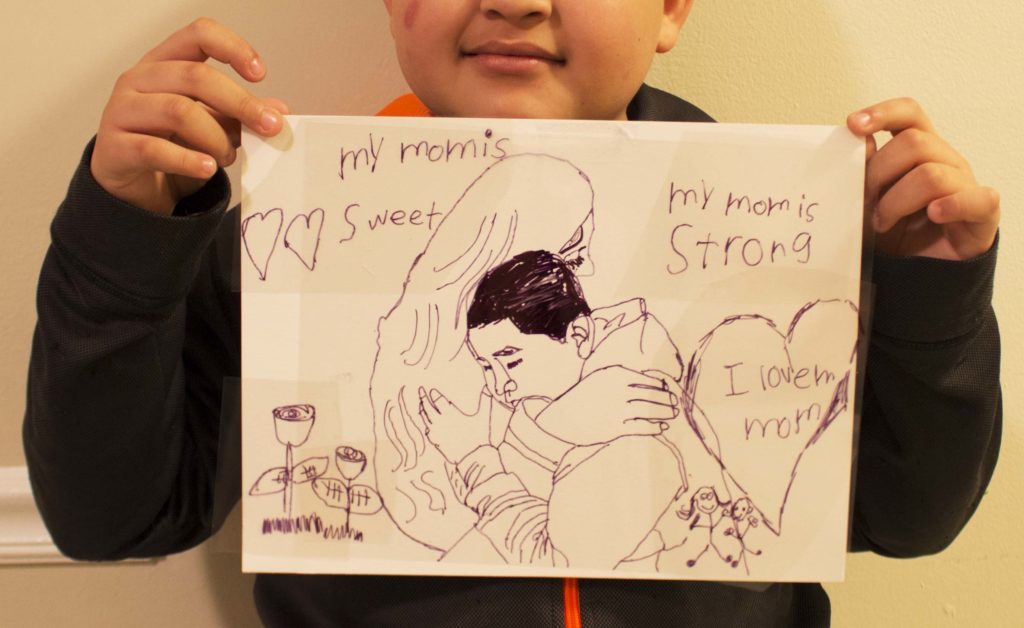
Ortiz’s mother, who immigrated from Colombia at 17, worked for decades in the Italian Market for the Giordano family at 10th and Washington. Her father, who moved from Puerto Rico as a young man, did maintenance work for a Center City office building. They were the second Puerto Rican family to move onto their block. That gives the current immigrant situation an immediacy for Ortiz, a sensitivity to those trying to create a new life in the United States.
Despite all the fancy third-wave coffee options at Function Coffee, Ortiz orders a cup of tea with honey and launches into an almost two-hour blitz of information about the transformative power of her murals and workshops on the communities she engages, the blend of hope and practicality her art requires, and the unfairness of how she thinks immigrant families are being treated.
Ortiz wants Americans—regardless of where they land in the immigration debate— to remember that the families who are fleeing Mexico and Central American are humans, and as such, worthy of our compassion.
At one point, a woman drinking coffee nearby in the quiet coffee shop gives Ortiz a big smile from across the room and tells her how wonderful the work is that Ortiz has been describing. The artist’s passion for justice is infectious like that.
Capturing community tensions, identity and aspirations has been a thread in her work throughout Ortiz’s career. And there was more creative material to be mined beyond the geographical borders of Ortiz’s “Familias Separadas” Philly-based works. It led to the artist receiving a prestigious 2017 Artist as Activist two-year Fellowship from the Rauschenberg Foundation, allowing her to focus on the family trauma born out of the detention of undocumented mothers and children. Ortiz also landed a coveted Pew Fellowship last spring.
![]()
The second phase of “Familias Separadas,” which was unveiled in Harrisburg last October, had a specific target in mind: our state’s own family prison, Berks County Residential Center. The Pennsylvania facility is one of only three family prisons in the United States; the other two are in Texas. The Berks County center has been in operation since 2001 and is currently funded by a federal contract from ICE worth about $1.3 million a year, according to a 2018 story in The Reading Eagle.
About an hour away from Philadelphia, in Leesport, Berks is controversial. The government says it is needed to detain immigrant families while the government considers their cases, and for those who want to stem the tide of undocumented immigration, Berks might seem a part of a bureaucratic process, along with ICE and border control. As of this month, though, Berks is mostly empty, even as President Trump has said there is no more room for people seeking asylum.
But it still remains open, with a handful of families, and a process that is perplexingly unclear: some immigrant families are paroled into the care of family members and sponsors, while other families are put in detention. Who gets what treatment is a mystery that reflects the larger story of asylum-seekers at our borders and beyond.
![]()
To Ortiz, the issue goes beyond the legal fight, to one of fairness and compassion. Her grant from the Rauschenberg Foundation specifically tasks her with examining the trauma of the undocumented children and parents who are incarcerated in the Berks facility and to tell their stories through video and art installations. “Detention overall, whether it’s a day or two years, is still traumatic and dehumanizing. That’s important to communicate,” says Ortiz.
In March 2017, Ortiz began interviewing four mothers—Delmy, Lorena, Sofia, and Karen—who, along with their children, were held at Berks for almost two years before being released. Last fall, she painted an 88-foot-long image of their eyes onto the state capitol steps. It was one of eight large-scale works in Harrisburg unveiled before the mid-term election to stir public opinion and incite political action.
“Her approach to the issue wasn’t about lawyers or organizers yelling at politicians,” says David Bennion, a Philadelphia attorney who founded the Free Migration Project in 2016, which represents immigrant clients. “It is a new angle that is bringing the issue to a new audience. Her art provides a very humanizing perspective. It takes you out of the framework of immigration policy to see people as other human beings. That’s very valuable. She puts a face on the issue—literally.”
![]()
Ortiz and the Coalition to Shut Down Berks, a nonprofit advocacy group, hoped the murals would amplify the public outcry to spur Governor Tom Wolf to shut down the Berks facility with an emergency release order while it operates without a license, something he promised during his reelection campaign. Instead, they suggest he authorize the facility as a much-needed opioid treatment facility.
“The art makes people feel empathy, sadness, and anger,” says the artist. “But I want to move them towards action. People think this is just either a Latino issue or a migration issue. But it’s on a larger spectrum. It’s a mass incarceration issue, it’s a human rights issue, it’s a child welfare issue. My work is trying to widen the lens of why many people should be involved instead of just a specific community.”
Ortiz, along with film editor and cultural organizer Laura Deutch, are releasing a short documentary, Las Madres de Berks, about “Familias Separadas” that airs for the first time this weekend in Reading. It will be screened in Philadelphia on May 9th and June 3rd.
I ask Ortiz a final question about the detained women she interviewed. After all of the time in detention at Berks (the longest stint being 663 days) under those traumatic conditions, was the escape into the United States worth it?
“One of the moms who fled El Salvador had a teenage son,” responds Ortiz. “Before they left most of his friends were killed by gangs, so it was a looming fear that something would happen to her child. One of the phrases that the son said in his interview with me is ‘We left to save my life.’ It’s really about that.”
Photo by Neal Santos


